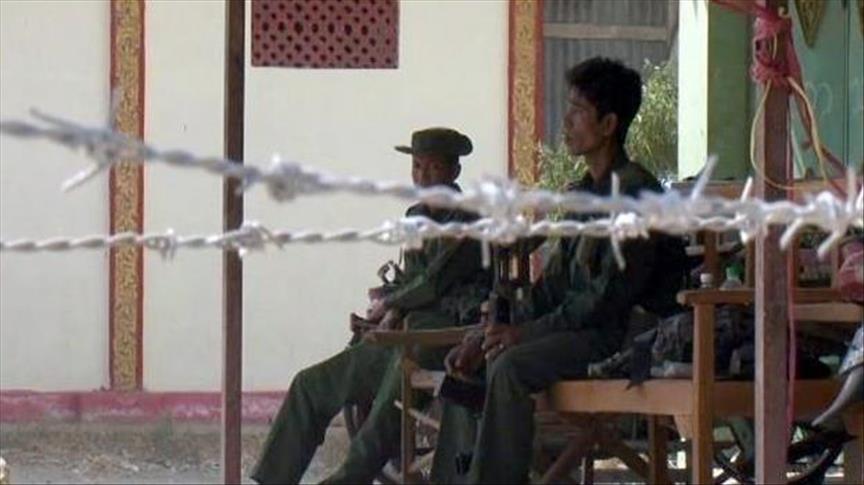Martial law lifted in conflict-ridden Myanmar state
Nine months of fighting between government and rebels in Shan state reported to be at an end just over a week after critical election

Yangon
By Joshua Carroll
YANGON, Myanmar
Martial law has been lifted in a conflict-hit corner of Myanmar, just over a week after a historic general election delivered victory to pro-democracy forces opposing the military-backed regime, local media reported Thursday.
Civilian rule will now resume in Kokang, an area of Shan state near the Chinese border, nine months after intense fighting between government troops and ethnic rebels that displaced tens of thousands of people.
“The situation has since returned to normal and... rule of law has been restored,” a statement from the president's office claimed Tuesday.
But a resident told The Myanmar Times that as of Wednesday evening an 8pm curfew was still in place.
In February, the fighting began with surprise attacks by the rebel Myanmar National Democratic Alliance Army (MNDAA) against the Tatmadaw, the name given to the government’s armed forces.
Several hundred soldiers have died in the fighting, but reliable figures for civilian casualties are not available.
In March, stray shells landed on Chinese soil during the fighting, killing four farmers and injuring nine others.
In October, Myanmar’s government signed a so-called Nationwide Ceasefire Agreement (NCA) with several groups, but did not allow the MNDAA and others to join the accord. Other groups, including the powerful Kachin Independence Army and Wa armies, refused to sign.
The NCA has been criticised as a face-saving measure to cover what amounts to President Thein Sein’s failure to secure a deal, which includes only eight of the 15 groups invited to sign.
Of those eight, many are either considered pro-government factions or are not involved in fighting.
“Only two groups signing the accord could be considered genuine rebel armies,” Bertil Lintner, a Myanmar expert known for his lack of enthusiasm about the peace process, wrote in Yale Global Online.
The National League for Democracy, which won a landslide victory in Myanmar's Nov. 8th election, is expected to take power around late March.
The party, led by Nobel peace laureate Aung San Suu Kyi, has said the peace process will be one of its top priorities after it forms a government.
Anadolu Agency website contains only a portion of the news stories offered to subscribers in the AA News Broadcasting System (HAS), and in summarized form. Please contact us for subscription options.




